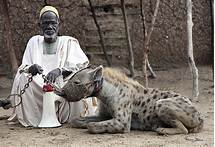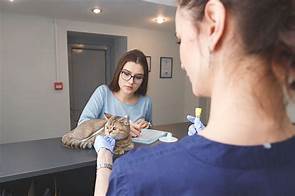Can You Have a Pet Hyena?
Hyenas are fascinating animals, often depicted as laughing scavengers in popular culture. However, owning a hyena as a pet is a complex and challenging endeavor that is not suitable for everyone. This article explores the feasibility of having a pet hyena, examining the legal, ethical, and practical considerations involved.

Legality:
1. Legal Restrictions:
The legality of owning a pet hyena varies by jurisdiction. In some countries, it is illegal to keep wild animals as pets, including hyenas. In other regions, there may be specific regulations or permits required to own a hyena.
2. Liability and Insurance:
Hyenas are powerful and potentially dangerous animals. Owning a pet hyena may increase your liability for any harm or damage caused to others or property. Obtaining insurance that covers potential risks associated with owning a hyena is essential.
Ethics:
1. Welfare Concerns:
Hyenas are social animals that thrive in large, complex social groups. Keeping a hyena as a solitary pet can deprive it of the social interaction necessary for its well-being. Additionally, providing an environment that meets the specific needs of a hyena in terms of space, diet, and enrichment can be challenging.
2. Conservation Implications:
The demand for pet hyenas can contribute to the illegal wildlife trade, potentially resulting in the capture or hunting of wild hyenas. This can have detrimental impacts on wild populations, particularly if the hyenas taken are breeding females or cubs.
Practical Considerations:
1. Housing and Enclosure:
Hyenas require a large and secure enclosure that can accommodate their natural behaviors, such as digging and running. The enclosure should be escape-proof and provide adequate protection from the elements and potential predators.
2. Diet and Nutrition:
Hyenas are primarily carnivores and require a diet that is high in protein. Providing a balanced diet that meets their nutritional needs can be complex and time-consuming. Additionally, hyenas may have specific dietary preferences or sensitivities that need to be carefully managed.
3. Training and Socialization:
Training and socializing a pet hyena is essential for safety and behavior management. Hyenas are highly intelligent and require consistent, positive reinforcement training to learn desired behaviors. Socialization with humans and other animals can also help reduce potential aggression and ensure a harmonious relationship.
Conclusion:
While it is possible to have a pet hyena, it is important to carefully consider the legal, ethical, and practical implications involved. Owning a pet hyena requires a significant commitment of time, resources, and expertise. If you are considering getting a pet hyena, it is crucial to do extensive research, consult with experts, and ensure that you can provide the necessary care and environment to meet the unique needs of these remarkable animals.
Declaration: All article resources on this website, unless otherwise specified or labeled, are collected from online resources. If the content on this website infringes on the legitimate rights and interests of the original author, you can contact this website to delete it.





